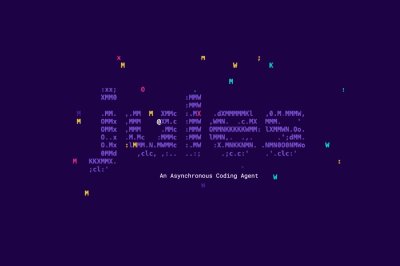Gendo
Gendo is an AI-powered architectural design tool that helps architects and designers generate and iterate on building designs quickly and efficiently, using generative design techniques.
Conceptual design Massing studies Space planning Preliminary design Design iterationTool Information
| Primary Task | Architectural design |
|---|---|
| Category | industry-specific |
| Pricing | Free + from $13/mo |
| Country | United Kingdom |
| Supported Languages | English |
Gendo is an innovative AI-powered platform designed to revolutionize the architectural design process. It leverages advanced generative design algorithms to assist architects and designers in creating innovative and efficient building designs. The platform allows users to input parameters such as site constraints, building codes, and desired functionalities, and Gendo then generates multiple design options that meet these specifications. This significantly reduces the time and effort required for initial design phases, allowing for more exploration and iteration. Users can interact with the generated designs, modifying parameters and refining the output to achieve their vision. Gendo's capabilities extend beyond basic form generation; it can also assist with material selection, structural analysis (to a limited extent, likely requiring integration with other tools for comprehensive analysis), and even preliminary cost estimations. The target audience includes architects, designers, and construction professionals looking to streamline their workflow and explore creative design possibilities. Gendo's unique selling proposition lies in its intuitive interface and powerful generative design engine, making complex design tasks more accessible and efficient. The platform works by using a combination of machine learning models trained on vast datasets of architectural designs and building information, allowing it to understand design principles and generate contextually relevant outputs. While Gendo offers significant advantages in terms of speed and efficiency, it's important to note that it serves as a design assistant, not a replacement for human expertise and judgment. Architects still need to review, refine, and finalize the designs generated by the platform, ensuring compliance with all relevant regulations and incorporating their professional judgment.
Gendo is a browser-based AI platform tailored for architects and designers. Founded by George Proud and Will Jones, it simplifies the process of creating computer-generated images (CGIs) by leveraging machine learning and artificial intelligence. This allows professionals to focus more on their creative work rather than time-consuming rendering tasks.
The platform offers a range of AI-powered tools, including Design to Image, which generates accurate images from user designs, and Generative Editing, enabling quick modifications to any part of an image. Gendo also features Style Transfer for transforming images into various artistic styles and a Text to Image tool that creates visuals from written descriptions. With over 3,600 users and partnerships with notable firms like Zaha Hadid Architects, Gendo is making a significant impact in the architectural community. The company has successfully raised £4.3 million in funding to support its growth and innovation.
| Pros |
|---|
|
| Cons |
|---|
|
Frequently Asked Questions
1. What is Gendo and what is its primary purpose?
Gendo is an AI-powered architectural design tool. Its main purpose is to help architects and designers generate and iterate on building designs quickly and efficiently using generative design techniques, focusing on architectural design.
2. What tasks can Gendo assist with?
Gendo can help with conceptual design, massing studies, space planning, preliminary design, and design iteration. It also assists with material selection and preliminary cost estimations, though structural analysis is limited.
3. Who is the target audience for Gendo?
Gendo is designed for architects, designers, and construction professionals seeking to streamline their workflow and explore creative design possibilities.
4. What are the advantages of using Gendo?
Gendo offers faster design iteration, allowing exploration of multiple design options. This leads to improved efficiency and potentially reduced design costs.
5. What are some limitations of Gendo?
Gendo requires user expertise to interpret and refine AI-generated designs. Its capabilities in structural analysis and detailed design are limited, and results may be influenced by biases in the AI algorithms.
6. How does Gendo work?
Gendo uses generative design algorithms and machine learning models trained on extensive architectural design data. Users input parameters like site constraints and desired functionalities, and Gendo generates design options meeting those specifications.
7. What type of 3D design does Gendo specialize in?
Gendo specializes in architectural design, assisting with various stages from conceptual design to preliminary design.
Comments
Similar Tools
Related News

The landscape of software development is undergoing a profound transformation, propelled by the relentless march of artificial ...
@devadigax | Oct 02, 2025

Anthropic, a leading AI research and safety company, has made a significant stride in the artificial intelligence landscape wit...
@devadigax | Sep 29, 2025

Google DeepMind, the powerhouse behind groundbreaking AI advancements, has unveiled Genie 3, a revolutionary AI model capable o...
@devadigax | Aug 04, 2025
 AI Tool Buzz
AI Tool Buzz